Early adopters
Harm Schouten, Eurosite

Jeannine Cavender-Bares, ASCEND BII, NSF, University of Minnesota
Jeannine Cavender-Bares is Distinguished McKnight University Professor in the Department of Ecology, Evolution and Behavior, University of Minnesota, USA and is Director of the NSF Biology Integration Institute ASCEND (Advancing Spectral biology in Changing ENvironments to understand Diversity).
Jeannine’s work focuses on the physiological and evolutionary dimensions of plant ecology that influence community assembly and ecosystem function. She is particularly interested in the genetic and evolutionary basis of variation in plant phenotypes and spectral properties that can advance remote sensing of biodiversity, particularly detecting change through time and its consequences for ecosystems. She is committed to advancing international efforts for global monitoring and assessment of biodiversity and ecosystem services to aid management efforts towards sustainability. She is on the Governing Board of the Ecological Society of America and a member of the American Academy of Arts and Sciences.

Marco Heurich
Marco Heurich received the Ph.D. degree in forest remote sensing from the Technological University of Munich, Germany in 2008. He is head of the department of national park monitoring in the Bavarian Forest National park and Professor of wildlife ecology and conservation biology with the University of Freiburg, Germany and the Inland Norway University of Applied Science. He has authored more than 274 peer-reviewed journal articles and 22 book chapters. His research interests include remote sensing and its applications in forest ecology, wildlife ecology, and conservation. Prof. Heurich received a scholarship for highly gifted students from Friedrich- Naumann-Stiftung and is the recipient of the Lennart-Bernadotte-Award for landscape ecology.
Mikael Karlsson, Ecoforestry Foundation

Sonia Vanderhoeven, Biodiversity.be
Plant biologist specialized in biological invasions. Sonia Vanderhoeven has been working in the fields of evolutionary ecology, societal perception of environmental issues and the development of decision support tools. She is currently working as Science Officer at the Belgian Biodiversity Platform, a science- policy-practice interface funded by the Belgian Science Policy Office where she facilitates science-policy processes on invasive alien species and biodiversity at large.

Tim Adriaens, INBO
Tim Adriaens (Belgium) is a conservation ecologist at the Research Institute for Nature and Forest (INBO). He works in the Research Group Wildlife Management and Invasive Species and coordinates invasive species activities throughout the scientific community. Tim provides expertise and support in relation to IAS surveillance, management and policies to different governmental bodies and stakeholders. He was involved in several horizon scans, such as for Europe and for the North Sea region.
His research topics include pathway analysis, horizon scanning, risk assessment and risk management, control of invasive amphibian and exotic geese populations, invasive weeds, ruddy duck and muntjac eradication, aquatic IAS, exotic insects, IAS recording and monitoring, citizen science, best management practices and management feasibility analysis, cost-benefit analysis etc. A lot of this work is performed within the framework of the EU IAS Regulation. Tim is a member of the IAS working group for the EU IAS Regulation and the Belgian Scientific Council on IAS. He was a partner in several European projects on IAS management and communication, such as the Interreg projects Invexo (Invasive Species in Flanders and the Netherlands), RINSE (Reducing the Impact of Invasive Non-Native Species in Europe) and SEFINS (Safeguarding the Environment from Invasive Non-native Species). His current projects include risk assessments for the European Commission, COST Alien-CSI (Increasing Understanding of Alien Species Through Citizen Science), TrIAS (Tracking Invasive Alien Species) and reviews of management methods for IAS for IUCN.
